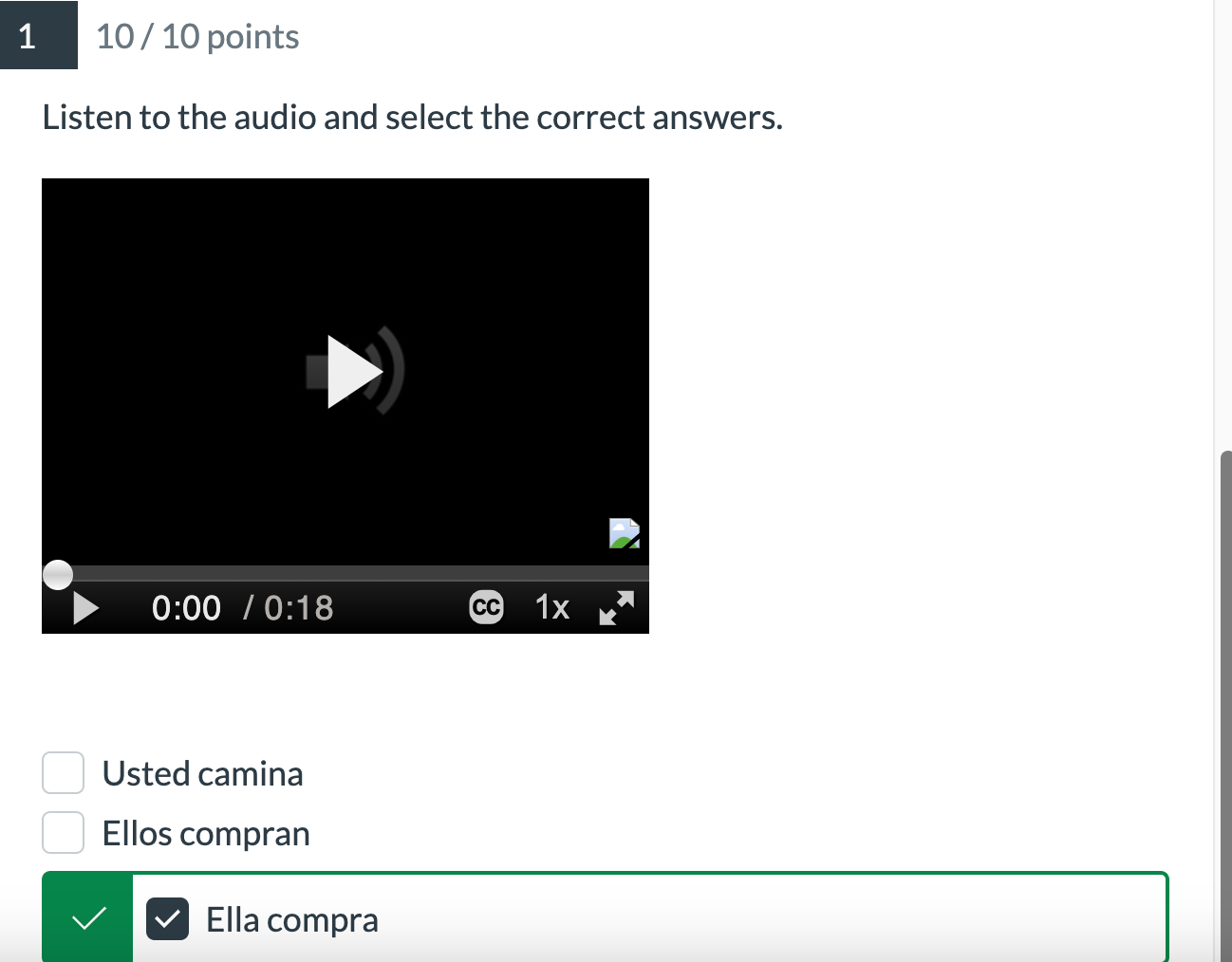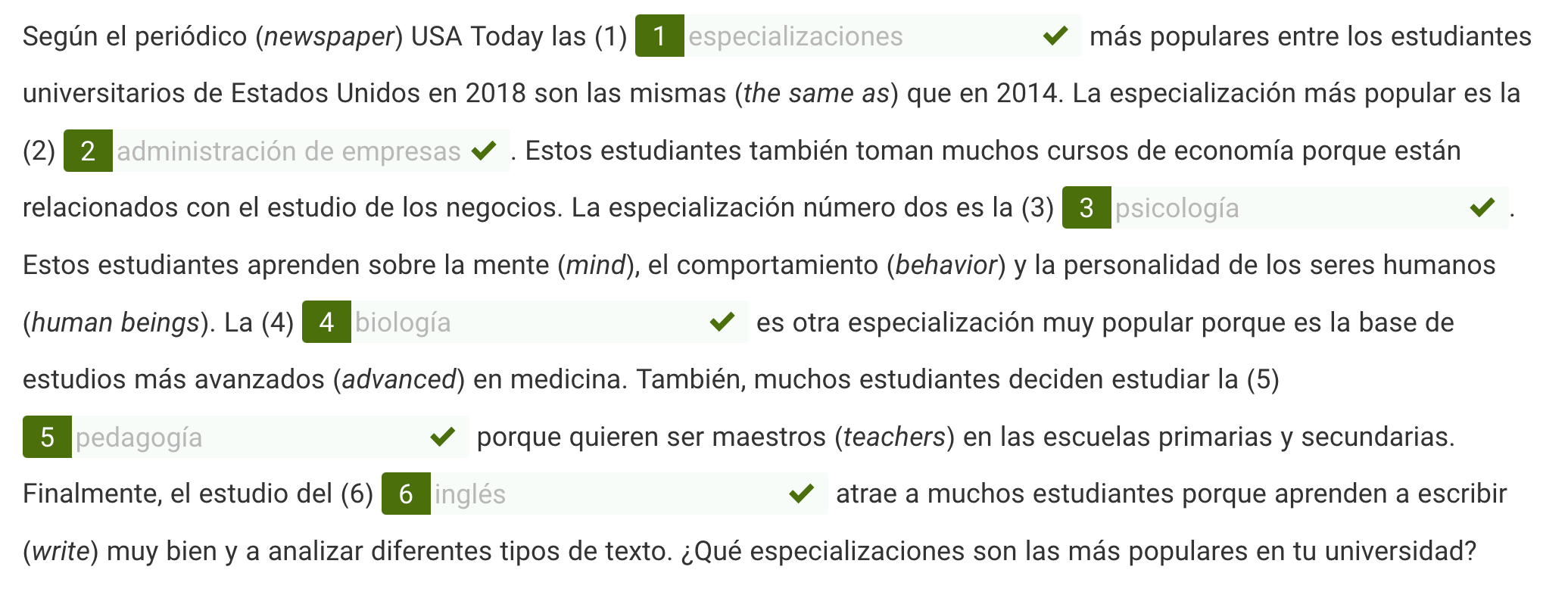Exploring Culture
Reading literature from diverse cultures exposes individuals to unique worldviews, historical contexts, and societal norms, fostering empathy and understanding of different perspectives. Watching films and documentaries from various cultures can provide insights into their values, beliefs, and social issues, offering a window into the lives of people from different backgrounds. Learning a new language< such as Spanish, not only helps individuals communicate more effectively but also grants them access to the nuances and intricacies of culture, enhancing cross-cultural understanding. And lastly, exploring and trying dishes from various cultures offers a delicious way to learn about their culinary traditions and the significance of food in their lives.
- Exploring another culture can challenge preconceived notions and stereotypes you may have had. For example, if you believe all Hispanics share specific traits, encountering diversity within the culture can change your perspective.
- Understanding different values and attitudes may lead to cognitive dissonance, as some beliefs may conflict with your own. This discomfort can be an opportunity for personal growth as you learn to empathize and respect different perspectives.
- Recognizing and acknowledging cultural biases or misconceptions can be humbling and may require you to reassess your worldview. This process can lead to increased cultural sensitivity and appreciation for diversity.
- Learning about Hispanic culture may reveal historical and systemic issues that have shaped their experiences, shedding light on social inequalities and injustices. This awareness can prompt you to become an advocate for positive change.
Overall, engaging with another culture involves a continuous process of self-reflection, empathy, and an open mind. It allows you to challenge stereotypes, broaden your worldview, and develop a deeper understanding and appreciation for cultural diversity
Engaging in Communities
Engaging in both your immediate community and the global community holds significant value and importance for individuals and society as a whole. Here’s a brief description of their benefits:
- Value of Engaging in Your Immediate Community:
a. Social Cohesion: Active involvement in your local community fosters a sense of belonging and connection among its members. It strengthens social bonds and promotes unity, leading to a more cohesive and supportive environment.
b. Local Problem Solving: By engaging with your immediate community, you become aware of local issues and challenges. This proximity allows you to contribute directly to finding solutions and positively impact the lives of those around you.
c. Personal Growth: Participating in community activities and volunteering can lead to personal growth and development. It offers opportunities to learn new skills, gain experience, and enhance self-confidence.
d. Support Network: Being part of a community provides a support system during times of need. Whether it’s emotional support or practical assistance, the community is often there to help its members in times of crisis.
- Importance of Engaging in the Global Community:
a. Addressing Global Challenges: Many issues facing the world today, such as climate change, poverty, and pandemics, require collective action on a global scale. Engaging in the worldwide community allows individuals and nations to work together toward finding solutions to these shared challenges.
b. Cultural Exchange: Global engagement facilitates the exchange of ideas, knowledge, and culture between different regions and societies. This cultural diversity fosters mutual understanding, tolerance, and appreciation for one another.
c. Humanitarian Impact: By reaching out to the global community, individuals and organizations can provide humanitarian aid and support to people in need, regardless of geographical boundaries. This solidarity is crucial in times of disasters or crises.
d. Economic Opportunities: Participating in the global economy opens up opportunities for trade, investment, and collaboration. It promotes economic growth, innovation, and job creation in both developed and developing regions.
e. Peace and Security: Engaging in global dialogues and diplomatic efforts can contribute to conflict resolution and promote peaceful coexistence among nations. Building strong international relationships is essential for maintaining global stability.
In summary, engaging in both your immediate community and the global community offers numerous benefits, ranging from personal growth and social cohesion at the local level to addressing global challenges, fostering cultural exchange, and promoting peace and prosperity on a global scale. Both forms of engagement are interconnected and play a vital role in shaping a more inclusive, sustainable, and interconnected world.
Interpersonal Communication
My first oral assignment was to record myself reciting the Spanish alphabet and reading off a word that matched each letter. In order to memorize it Looked up a Spanish alphabet song on Youtube and just kept replaying it and singing it until I could do it by myself. It ended up being really catchy and saved my grade.
I’m glad I decided to look for another outlet to help me learn. YouTube is a great source and has pretty much any and all information out there. With each activity and assignment we did I feel like I became more comfortable writing and typing in Spanish. You kind of forget that for other languages people use a whole different keyboard, so that was interesting and took some getting used to the different letters and symbols that are used for Spanish.
Presentational Speaking
This semester I completed a hand full of speaking assignments. I would sit down and record myself speaking Spanish or I would play my professor’s video in the background and record myself answering her questions.
For each of my recordings, it wasn’t that hard to do. It just took time to figure out what I wanted to say and how to say it in Spanish. Then the next part was to memorize it and not look at my notes. The one assignment I was terrified about was my first Zoom call with the professor because I didn’t know what she was gonna ask me and if I was going to be able to answer in Spanish or be able to answer in the correct way. Next time I know not to be so in my head about things and just study. Studying by writing, listening to, and practicing speaking Spanish is so helpful. You need to be submersed in it to really catch on.
Presentational Writing
Our discussion posts were something I would look forward to in each module. For this specific one, we watched a video about different fiestas or holidays celebrated in Spanish-speaking countries and wrote about which was our favorite and why. We also got to talk about a holiday we enjoy and I included a tradition, my family does for ours.

Again, I became more comfortable writing and engaging with what my classmates wrote as well. I love learning about other people’s cultures and backgrounds, so this class was really enjoyable for me. Something I’ve learned is to not be afraid of having what you think is considered the correct answer. Most of the time our discussion posts were very intimate and our class was a smaller group of people, so we could really engage and get to know each other through our posts.

Interpretive Listening
For each module, we had small quizzes and sometimes they were audio quizzes. We had to select the right words that were being said and make sure if it was male or female, or conjugated correctly.
Different things I heard in and outside the classroom were the module vocabulary videos, my professor’s flip grid videos, Spanish music, and Spanish audio in our textbooks. What I found most interesting was how much I already knew and how fast I picked up on and listened to keywords to help me figure out the main points in a statement or question. What became challenging was understanding different Spanish accents. Depending on where you’re from, the way you say and pronounce things can be completely different. I haven’t quite overcome this difficulty yet, but it just takes practice and patience.

Interpretive Reading
In our textbook, I did a lot of reading for the assignments. In some cases, it would be a little background story about two people meeting up somewhere and I would have to figure out what time they were meeting or who had what profession.

Personally, the textbook work was a lot harder than our quizzes, but was the same format as our exams so that was helpful. I would still struggle on exams but I think that just was because of my built-up stress and anxiety of knowing I was being timed. There’s always room for improvement though!